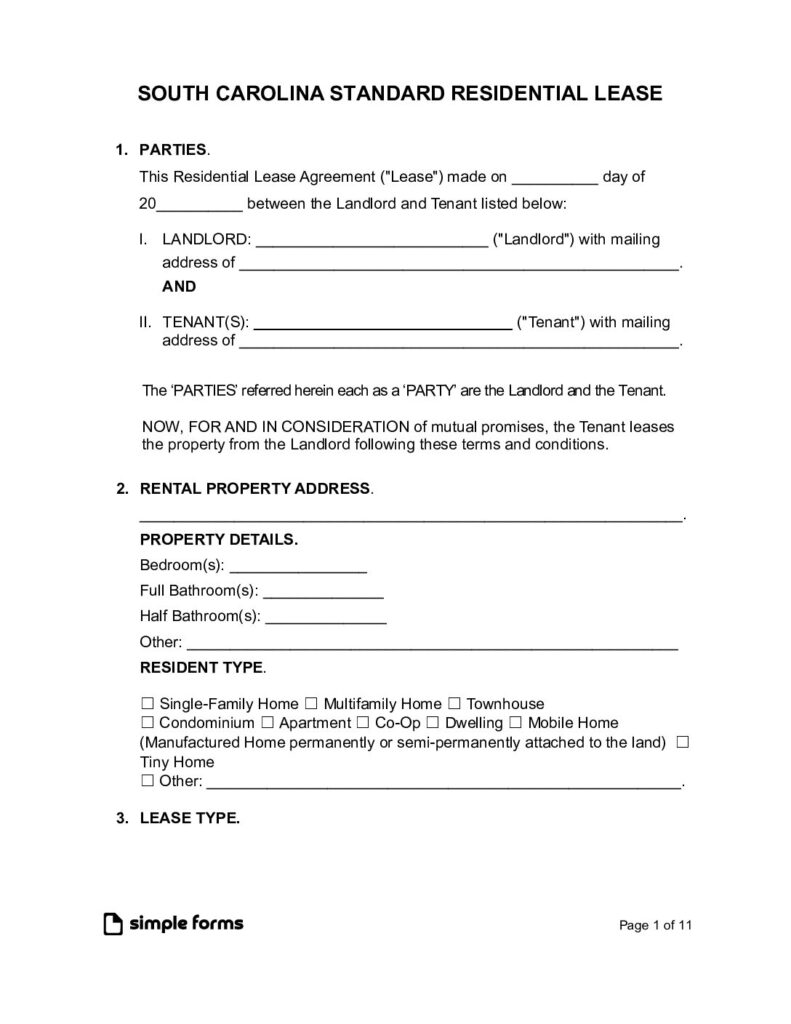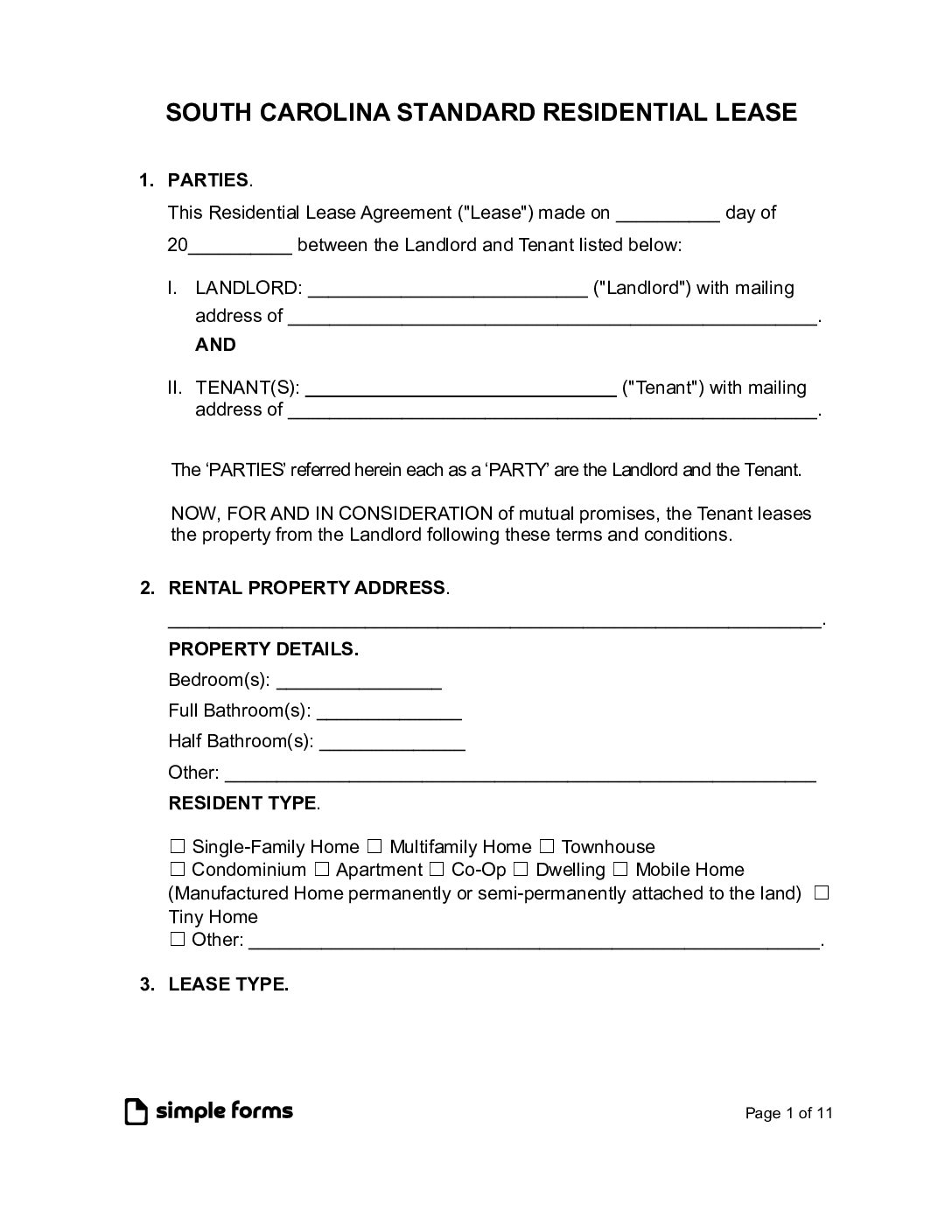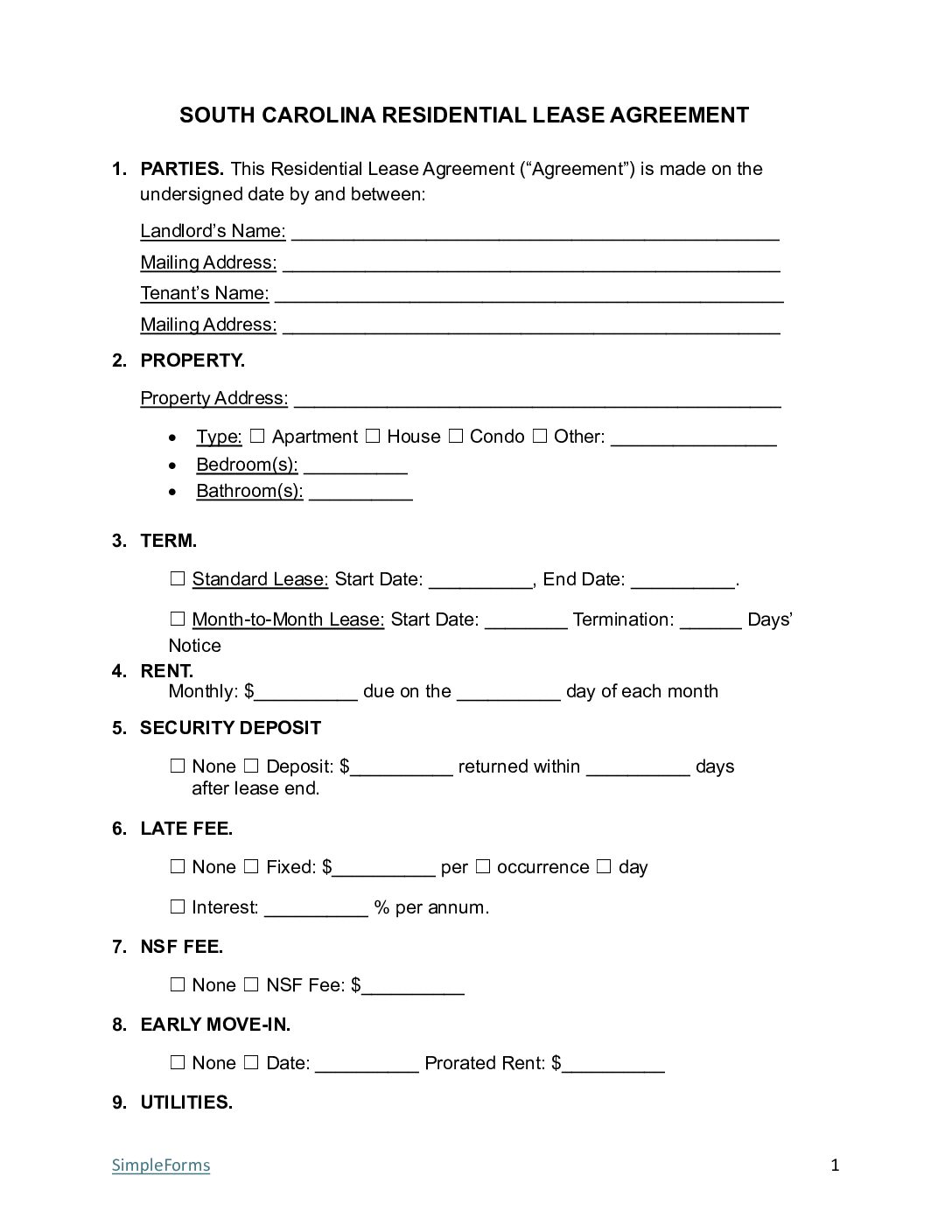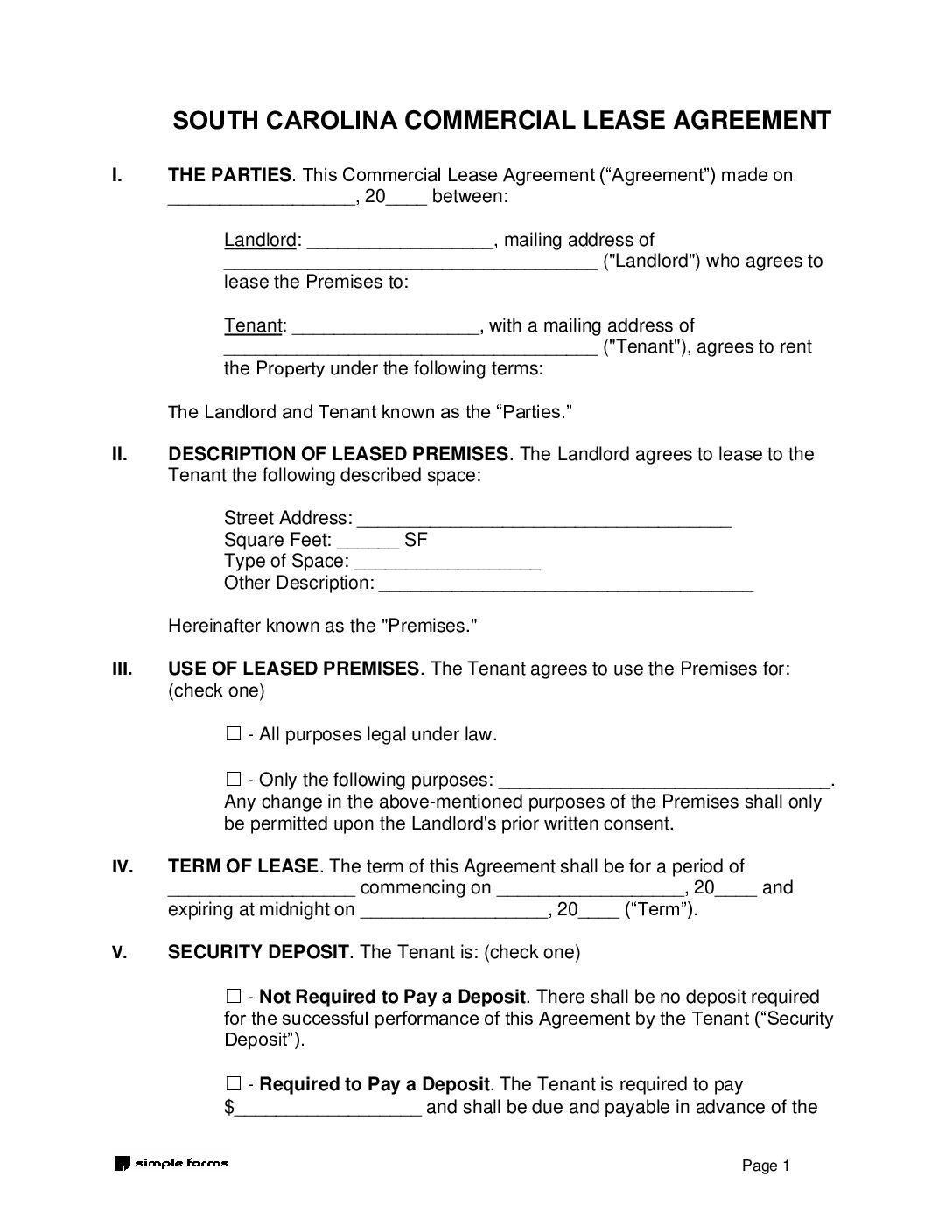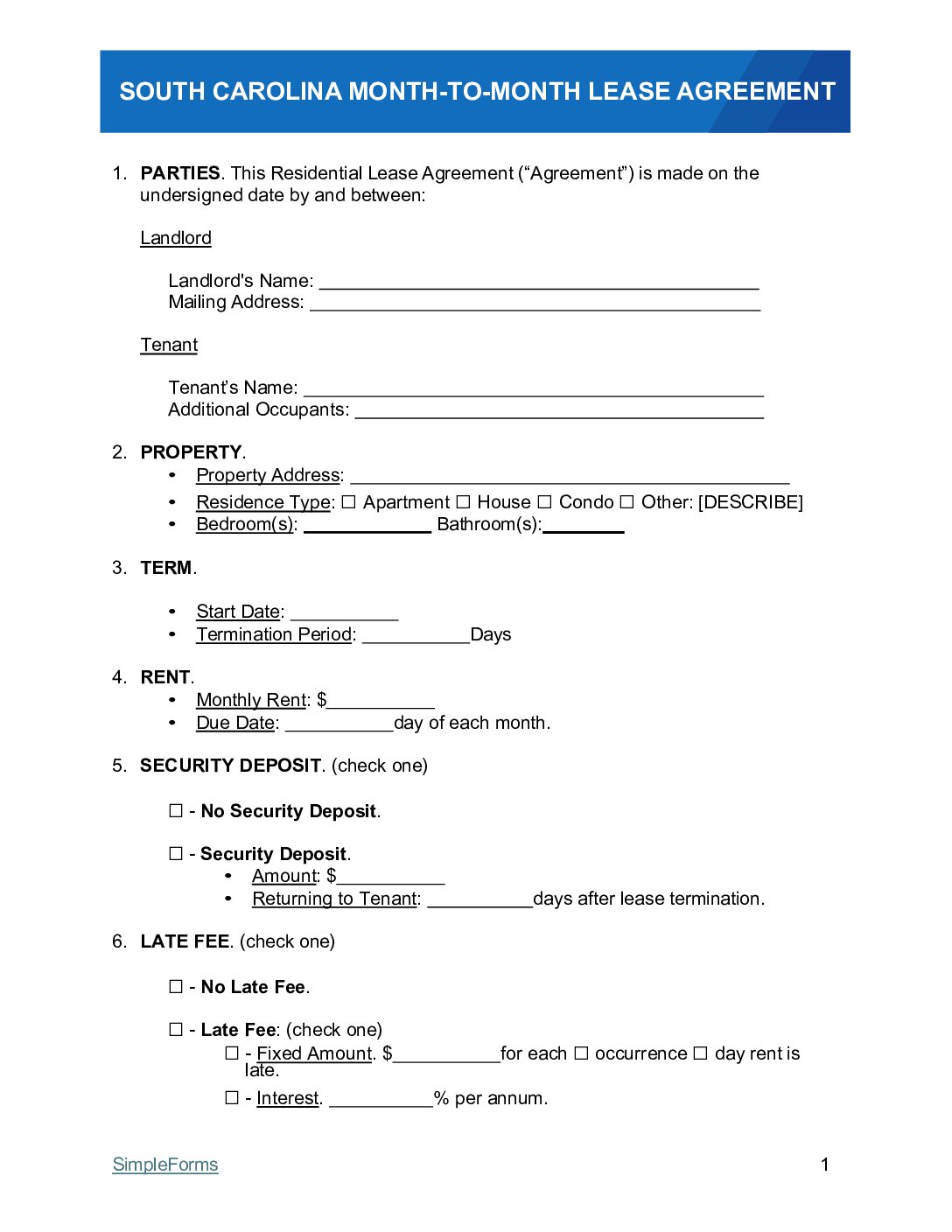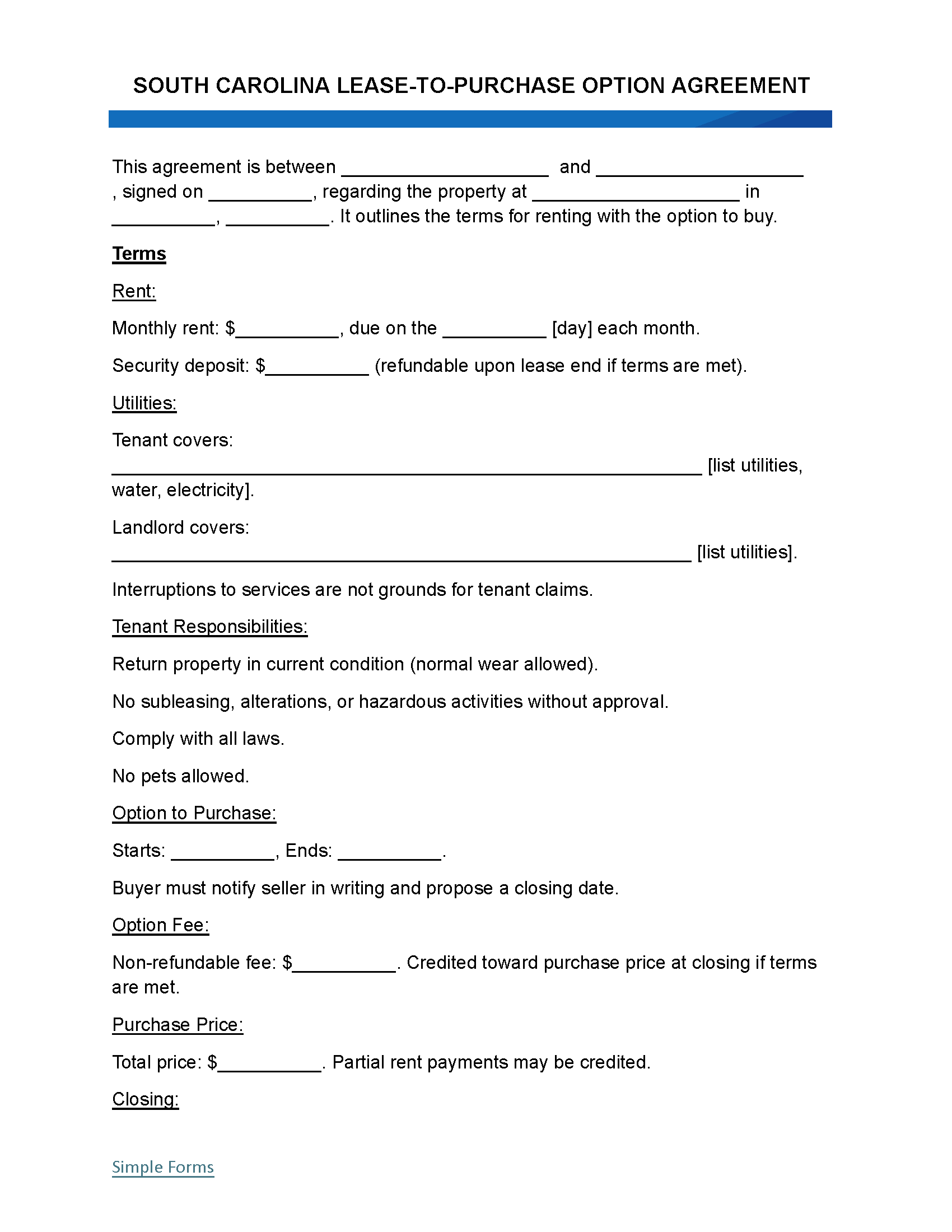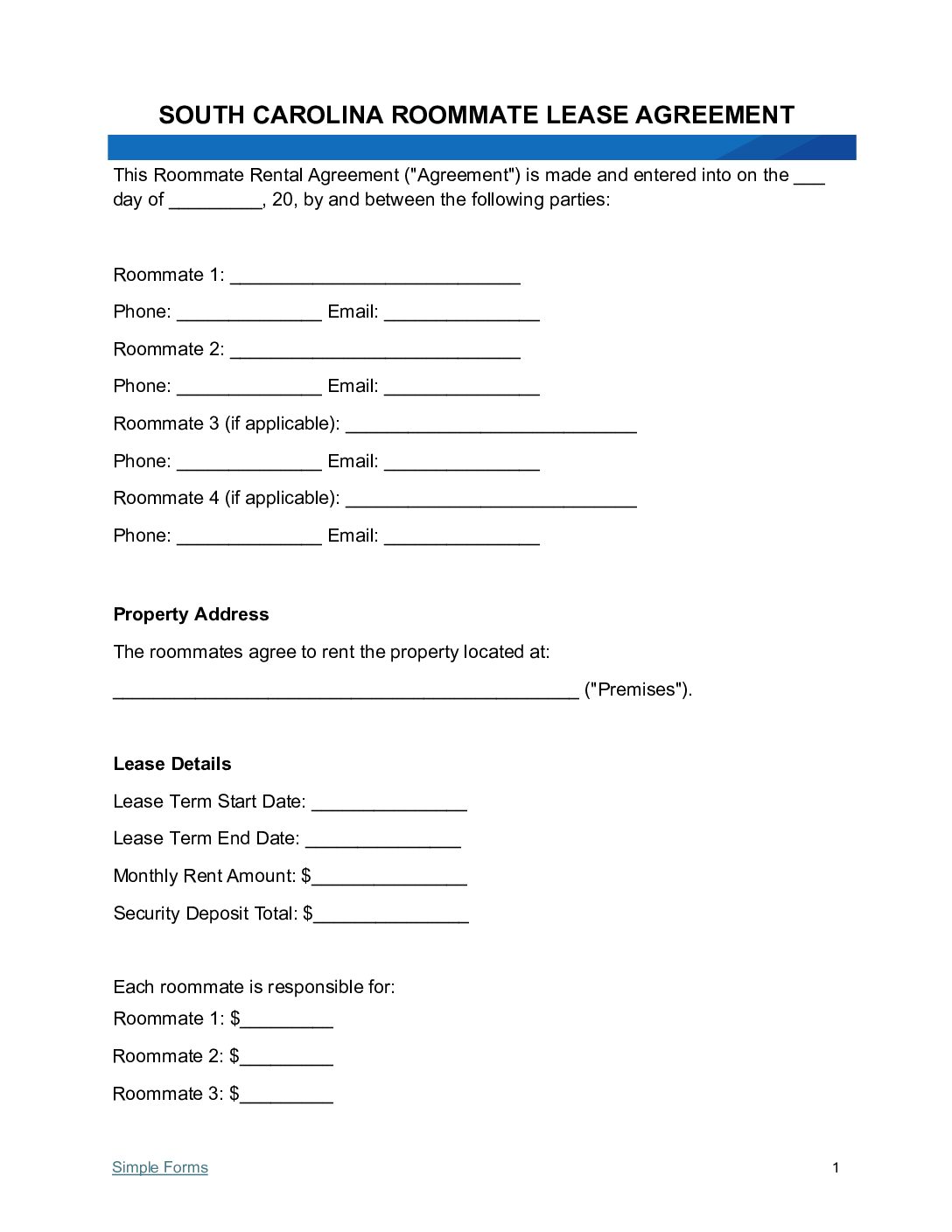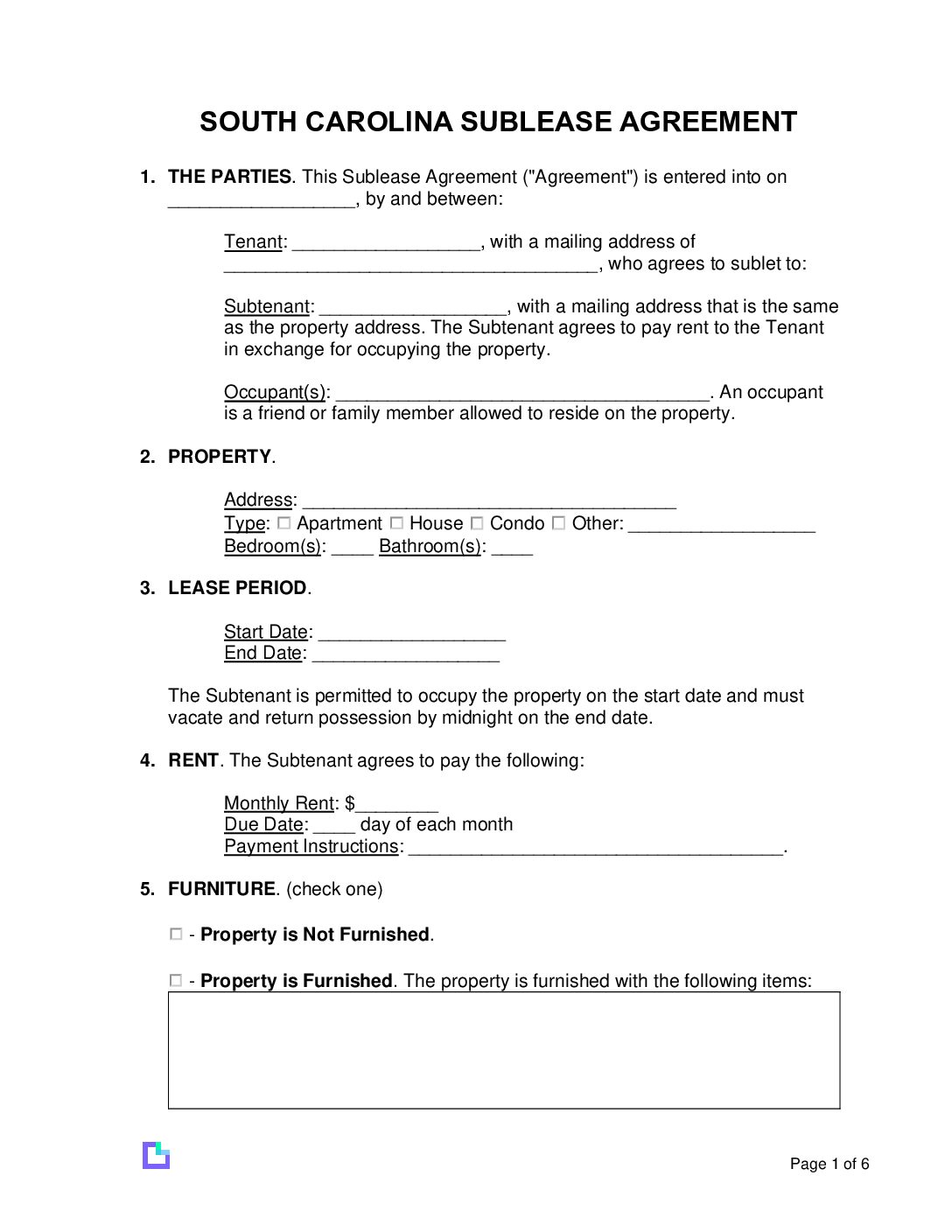By Type (6)
| South Carolina Residential Lease Agreement – Most popular type of lease with a term of 1-year or more. Download: PDF | Word (.docx) |
|
| South Caroline Standard Commercial Lease Agreement Form – For rental agreements intended for business or commercial purposes, not for residential use (Form 400). Download: PDF | Word (.docx) |
|
| South Carolina Month-to-Month Lease Agreement – This agreement renews monthly with payment made to the landlord. Either party may terminate the arrangement with a minimum of 30 days’ notice. Download: PDF | Word (.docx) |
|
| South Carolina Rent-to-Purchase Option Lease Agreement – A general residential agreement with additional terms granting the tenant the option to purchase the property. Download: PDF | Word (.docx) |
|
| South Carolina Room (Roommate) Rental Lease Agreement – A roommate lease is an agreement between the main tenant and their roommate. It outlines the responsibilities, expectations, and financial duties between them Download: PDF | Word (.docx) |
|
| South Carolina Sublease Agreement Template – Used when the tenant rents out their space while still under the lease. Download: PDF | Word (.docx) |
What does the South Carolina Rental Lease Agreement Covers?
This document includes the following laws between the landlord and tenant in South Carolina:
- South Carolina Residential Landlord & Tenant Act
- Security Deposit Law
- Lease Termination
- Landlord’s Access to the Property
- Rent Due Date plus Late Fees
- Eviction Procedures
- Property Maintenance
- Required Disclosure Forms
South Carolina Residential Landlord & Tenant Act
The South Carolina Residential Landlord and Tenant Act is a guide for landlords and tenants that addresses the following.
- Maintenance of the Property – Landlords must ensure the property meets minimum housing standards and remains habitable. Tenants are responsible for keeping the premises clean and safe.
- Rental Agreements – Outlines rules for written or oral rental agreements between parties.[1]
Security Deposit Laws
Landlords in South Carolina can require a security deposit and must return it within thirty (30) days after the tenant vacates, minus deductions for damages.
- 30 Days – Timeframe to return the deposit. [2]
- Deductions (if any) must be itemized.
- Normal wear and tear cannot be deducted.
Lease Termination Rules for the Landlord and Tenant
Leases in South Carolina may be terminated by either party under the following rules:
- Landlord’s Ability to Terminate
- 5-day notice for nonpayment of rent (if stated in the lease).
- 14-day notice for material noncompliance with the rental agreement.
- Tenant’s Ability to Terminate
- With proper written notice for unsafe conditions or habitability issues.
- 30 days’ notice to terminate a month-to-month lease.[3]
Landlord’s Access to the Rental Property
Rent Due Dates and Late Fees
- Rent Due Date – South Carolina does not mandate rent due dates, which are determined by the rental agreement.
- Late Fees – may be charged if written in the agreement and the amount cannot be excessive.
- Grace Period – 5-day grace period.
- NSF Fee – $30 per bounced rent check. [5]
Eviction Procedures for Landlord and Tenant
Property Maintenance Requirements
Landlords must make sure the rental properties meet the health and safety codes and address any repairs. Tenants can issue a written notice requesting repairs and may withhold rent or terminate the lease if repairs are not made within a reasonable timeframe. [7]
- Note – Tenants may not make deductions from rent for repairs without written landlord approval.
Required Disclosure Forms (3)
- Lead-Based Paint Disclosure Form – Landlords must disclose lead-based paint if the property was built before 1978. [8]
- Landlord/Owner Identification – Must provide the owner’s or landlords’s contact information and mailing address to send notices. [9]
- Unequal Deposits – Landlords must explain the deposit calculation methods in rental properties with over four connected units. [10]
Sample South Carolina Rental Lease
Download: PDF
